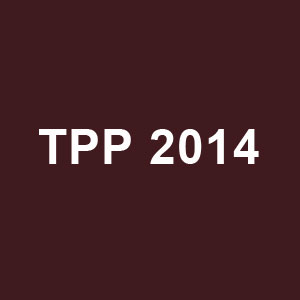How are we supposed to respond?: the presence of performers perceived to have intellectual disabilities interrogating ethics and spectatorship in contemporary performance
At the beginning of Jerome Bel’s Disabled Theatre Julia Hausermann from Theater Hora comes to the microphone gives her name and age and says ‘Ich bin Schauspielerin.’ At the end of Ganesh Versus the Third Reich by Back to Back Theatre, Mark Deans is left on stage alone, under a table, for three minutes. Music plays. The lights slowly fade. In these moments both performers with Down’s Syndrome are left in the gaze of the audience long enough to suggest that these performances demand the audience’s questioning of how they see performers, or people, with Down’s Syndrome.
A number of Performance Studies scholars have sought to relate performances by Back to Back and Theater Hora to the work of Emmanuel Levinas, recomposing concepts such as ethical relations, the ethics of the Other, and the face-to-face relation, to inform analyses of otherness in performance and the ethics of spectatorship. In Theatre and Ethics Nicholas Ridout is ambivalent about this particular ‘turn’ to Levinas, and the relationship between theatre and ethics. He concludes his monograph with the provocation: ‘Theatre’s greatest ethical potential may be found precisely at the moment when theatre abandons ethics.’
In the moments when Julia Hausermann and Mark Deans receive and respond to the audience gaze there appears to be a ‘call’. Is it a call to responsibility, a call to acknowledge mutual vulnerability, a call to love? An affective charge passes between and amongst bodies in the theatre – but still in the theatre. Can performance ever do anything but ‘play’ with an ethical response, a political call to action or the consolation of philosophy – but might this not be the value of performance to philosophy?
Tony McCaffrey has a BA in English from King’s College, Cambridge and, after many years’ experience as an actor, director and playwright in the UK, France, Turkey, the United States and New Zealand, is completing a PhD in Theatre and Film Studies at the University of Canterbury (working title: The Politics and Aesthetics of Disability Performance). He is a Lecturer in Creative Industries at Christchurch Polytechnic Institute of Technology and founder and Artistic Director of Different Light Theatre Company, an ensemble of people perceived to have intellectual disabilities, in Christchurch since 2004. He has given papers at the conferences of the Society for Disability Studies, Performance Studies International and IFTR/FIRT in Santiago and Barcelona. Recent performances by Different Light Theatre include The Poor Dears, the Powerhouse Museum, Sydney, Still Lives in San Jose, California, The Earthquake in Chile a site specific performance presented amid Christchurch’s earthquakes in collaboration with Free Theatre and Richard Gough of the Centre for Performance Research, Still Lives at the Ludus International Festival of Performance, Leeds, 2012, The Lonely and the Lovely: a Different Soap Opera at the Concourse in Sydney and The Canterbury Tales(2013), a site specific series of performances in the earthquake-damaged central city.

